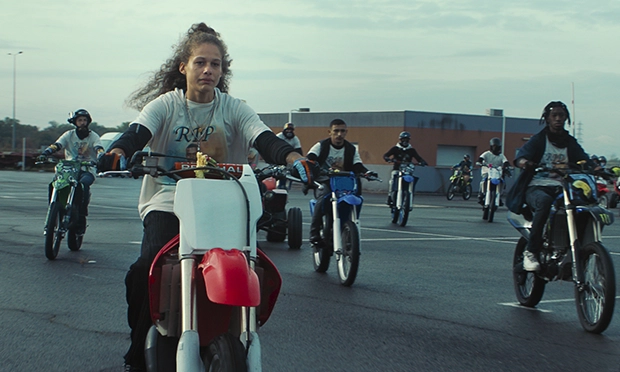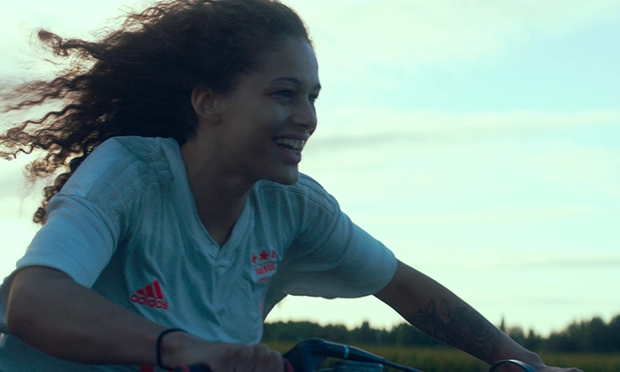Rodeo, film review: ‘A formidable lead performance let down by a disjointed story’

Julie Ledru in Rodeo. Image: CG Cinema
When you picture the mid-90s, what comes to mind?
For me, it’s everything “gangsta”, drugs, bad haircuts, and liberally spray-painted surfaces.
If you add all those to the world of dirt bikes and stunts, you have Rodeo – except it’s somewhat confusingly set in the present day.
French writer/director Lola Quivoron’s first feature-length film tries to immerse us in a world that she knows well. This allowed her to source a truly astounding range of non-professional actors.
Turns out it’s much easier to teach stunt bikers how to act than turn actors into urban rodeo experts. Who knew?
The subculture of metal steeds, adrenaline junkies and rear wheelies has caused controversy in France, with police across the country cracking down on it.
Noting a gap in this male-dominated world, Quivoron met up with a female rider, Julie Ledru.
Drawing from her own experiences, Quivoron created the character of Julia and the story of Rodeo together with writer Antonia Buresi.
Julia is a misfit, abandoned by her family and trying to find belonging in a biker squad.
Drugs, crime and tension crackle, with predictably dramatic consequences.

‘Just fantastic’: Breakout star Ledru. Image: CG Cinema
Ledru is a formidable screen presence, potentially because she has real-life experience underpinning her performance, but probably because she is just fantastic. Her eyes are like deep pits of resentment, wells of historic pain, world-weary and wise. She isn’t acting, she is existing – just with a camera on her. Someone to keep every possible eye on, as hopefully, this is not the last we see of her.
Surrounding this impassioned performance and Mariana-Trench-deep character is a disappointingly disjointed story.
A good film should force you into liking or at least empathising with its theme. Yet we leave no more interested in the world of bike thievery.
Julia’s relationship with mob wife Ophélie (Antonia Buresi crops up again, this time in-front of the camera) has moments of soft intimacy. But around them swells the broiling waves of hyper-masculinity. Yes, the microcosm might be truly like that but the narrative doesn’t impress on us the value of depicting it.
Along with theme slip-ups, the storyline bounces along as if it has a puncture (eh?). Rather lackadaisical dream sequences flash up without much rhyme or reason, and the relationship mathematics don’t seem to square.
Characters become unrealistically close at lightning speed, and then distraught at the deaths of people they have only just met, seemingly only to drive (see what I did there?) the plot onwards.
The connective tissues of the tale are arranged in odd patterns. This undermines most of the investment from the audience, and causes a discordant lack of empathy for the characters onscreen.
Channeling James Dean in Rebel Without a Cause and with comparable acting ability, Ledru electrifies every scene she is involved in. Thankfully that is most of them.
Yet for all the barking French dialogue, trap music, bike crashes, heists, fights, depredation and protestations, it’s all a lot of noise and not much conveyed. Think Bat Out of Hell without music, or Mad Max with less interesting costumes.
The crescendo’s half-baked attempt at sentimentality merely leaves tyre tracks on the road and the smell of burnt rubber.
Rodeo releases today in cinemas and on Curzon Home Cinema.
